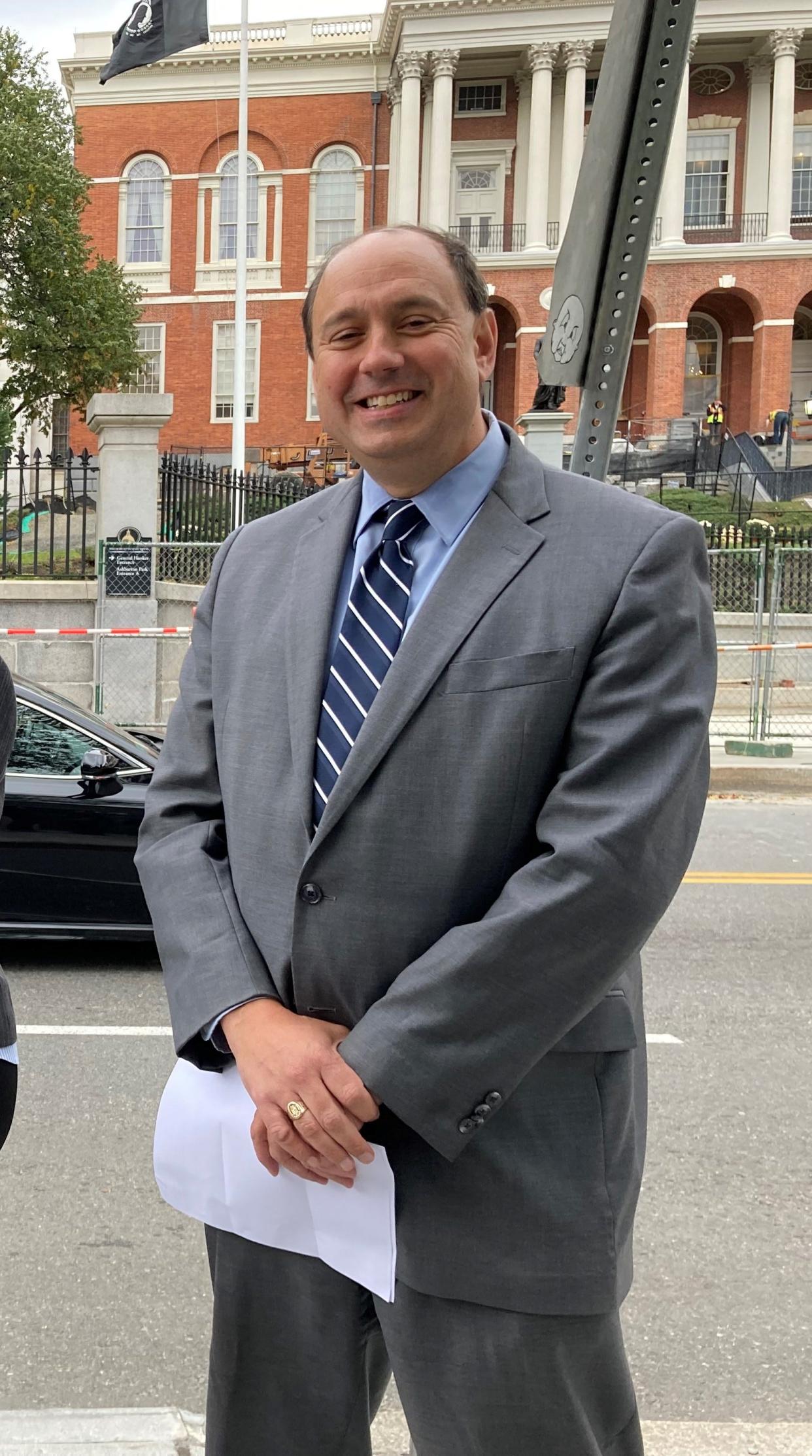State lawmakers hear directly from inmates on parole reforms

- Oops!Something went wrong.Please try again later.
Editor's note: James Keown's name was misspelled in an earlier version of this story.
BOSTON - State lawmakers heard virtual testimony from more than two dozen incarcerated persons from facilities across the state Tuesday after opening the floor to inmates and allowing them to speak in favor of criminal justice reforms pending before the Joint Committee on the Judiciary.
Committee chairman Sen. Jamie Eldridge, D-Acton, noted that the incarcerated persons were able to testify this way in this legislative session due to the intervention of Gov. Maura Healey. He remarked that the committee meetings were not opened to incarcerated people under the previous administration.
Inmates allowed to testify from prison
The bills ranged from establishing new parameters around parole hearings for “lifers,” people convicted of felony murder and sentenced to life in prison without the possibility of parole, to a proposal to modernize and strengthen supports for crime victims.
The original Crime Victim’s Bill of Rights was enacted almost four decades ago and needs to evolve to accommodate societal and technological changes, said Stephanie McCarthy, director of policy and legislative affairs at the Massachusetts Office for Victims Assistance.
The bill, filed by Rep. Marjorie Decker, D-Cambridge, would improve victim notifications to ensure those affected by crime are informed and up to date about the progress of their case through the justice system and the adjudication of their perpetrators. It could also serve to increase access to services supporting crime victims and strengthen victim statements.
The bill could also enhance the collaboration and cooperation between all aspects of the state’s criminal justice system, improving the working relationship between police, the courts and probation and parole.
Changes proposed for sentencing for felony murder
Of the list of nearly 50 bills, the companion bills filed by Sen. Liz Miranda, D-Boston, and Rep. Christopher Worrell, D-Boston, an Act to Reduce Mass Incarceration, solicited the most testimony. The bills would allow inmates adjudicated on felony murder charges and serving sentences of life without parole to apply for parole hearings after serving 25 years of their sentences.
In testifying to support her bill, Miranda talked about the emotional and financial trauma of incarceration on families. She noted that her district, Dorchester, is the most overpoliced and overincarcerated district in the commonwealth.
As she noted the racial discrepancies that plague the Massachusetts criminal justice system, only 22% of the state’s population identifies as Black, yet 70% of incarcerated teenagers identify as Black. Of the more than 1,000 “lifers” serving time in Massachusetts prisons, 34% identify as Black.
Statistically, Massachusetts aligns with Louisiana in the number of inmates serving life sentences, with 1,059 inmates, men and women, about 15% of Massachusetts’ prison population. About 39% are over 55. In comparison, New York state has 103 inmates serving life terms.
Miranda noted that her life, as the lives of many of her constituents, has been touched by gun violence, incarceration and homicide. Her father and brothers had all served time. Her brother, Michael, 28, was shot and killed outside a Boston nightclub in 2017. When she testified at the trial of her brother’s killer, she asked that the man not be sentenced to life without parole.
“That is a death sentence by another name,” Miranda said.
Not a 'get out of jail free' card
The measure is not designed as a “get out of jail free” card. Instead it would allow inmates, some adjudicated as teenagers, a chance to appear before a parole board and prove that they have changed.
“This is an extreme sentence, and it is not just,” Miranda said.
In discussing the House companion bill, Worrell noted that the incarcerated serving a life sentence have no opportunity to discuss their growth and commitment to reform.
“The law is broken,” Worrell said. Enacted with the repeal of capital punishment, Worrell said it is overused in Massachusetts. “Yes, they should serve their time, but they should also be allowed to show their growth and their understanding of the consequences of their actions.”
Some 28 inmates spoke before the Judiciary Committee, taking their three allotted minutes to discuss the changes they have made in their lives, their commitment to reform and rehabilitation, and their desire to be allowed to speak about to a parole board.
'A slow death sentence'
One woman said she killed her stepson. Another woman was charged and found guilty of felony murder under the “joint venture” clause and sentenced to life without parole after the person who murdered her husband testified against her in court.
“It’s a slow death sentence,” said Patricia Olsen, who has served 18 years of her life term. “Even if I did seek a parole hearing, it’s not a guarantee I will be released. It’s a second chance, we should be allowed to go home.”
If the purpose of incarceration is deterrence, punishment, incapacitation and rehabilitation, those goals are often met within that 25-year window, said James Keown, testifying from MCI-Shirley. He told the committee that life without parole is not more humane than the death penalty.
“If torture is a measure of pain, suffering and time, then life without parole is torture,” Keown said, citing the bad food, bad medical attention but most of all, the hopelessness of those inmates incarcerated for life. “It’s an execution in slow motion.”
This article originally appeared on Telegram & Gazette: Massachusetts lawmakers hear directly from inmates on parole reforms

